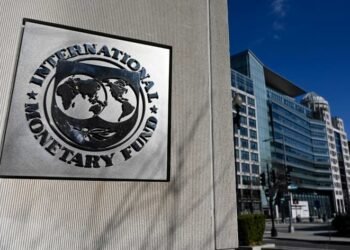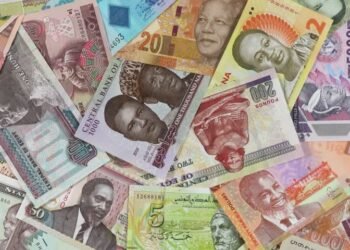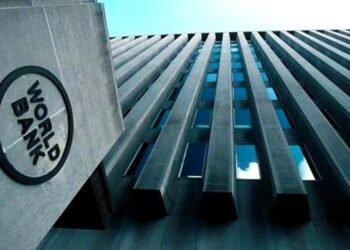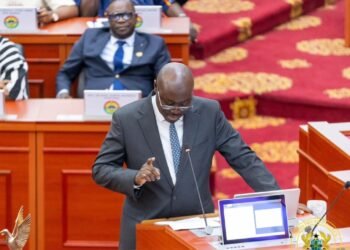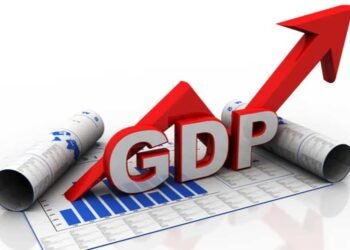Ghana, like many developing nations, relies on borrowing to finance critical infrastructure projects and stimulate economic growth. However, the interest rates at which a country borrows can have far-reaching implications for its fiscal health, economic stability, and overall development.
At the latest auction, the Bank of Ghana (BoG) raised GHS 1.17bn through the issuance of its own bills [Central Bank Bills] with a maturity period of 56 days at higher interest rate, putting the country at a more precarious position as it battles out high debt stock and rooftop interest payments.
The auction, saw the central bank selling short-term securities on the primary market to regulate money supply and manage liquidity in the banking system. The Interest rate at which the Central Bank bills were auctioned stood at 30.87%.
While the value of bids made by commercial banks was not disclosed, the auction outcome highlights the central bank’s ability to attract funding from the domestic financial market in support of its monetary policy objectives by using high interest rate as a bait.
The BoG bills are typically used in Open Market Operations (OMO), which are monetary policy tools used by central banks to manage money supply. Through OMO, the central bank can influence the cost and availability of credit in the economy by adjusting the supply of money in circulation.
It Is worth noting that the funds raised from the auction of the Central Bank bills are often loaned directly to the government to support its short-term needs.
Far-reaching Implications of High Interest Rates on Ghana
However, this act of BoG borrowing at sky-high interest rates has a dire implications on the country. When a country like Ghana borrows at high interest rates, it leads to a significant increase in its debt burden. High-interest payments consume a substantial portion of the government’s budget, diverting resources away from essential public services like healthcare, education, and infrastructure development. This, in turn, can limit Ghana’s ability to address pressing social and economic needs.
Moreover, borrowing at high interest rates exert tremendous pressure on Ghana’s fiscal position. As debt servicing costs rise, the government may be forced to cut public spending or increase taxes – the latter which the government is practicing fervently. Meanwhile, both can be politically unpopular and have negative implications for economic growth. It becomes a vicious cycle as the need for more borrowing to service existing debt can lead to further debt accumulation.
Ghana borrowing at high interest rates exposes the country’s currency to exchange rate vulnerability. A substantial portion of the debt may be denominated in foreign currencies, making it subject to fluctuations in exchange rates. A depreciation of the cedi can significantly increase the cost of servicing debt, exacerbating the already high interest rate burden.
One reason why authorities must be concerned with the habit of borrowing at a higher interest rate is the tendency of the huge interest cost to impede economic growth by diverting resources away from productive investments. It can deter private sector borrowing and investment, leading to decreased economic activity and employment opportunities. Slower economic growth can have adverse effects on poverty reduction and overall development.
Persistent borrowing at high interest rates, moreover, can negatively impact Ghana’s creditworthiness in the international financial markets. This can result in higher perceived risk, making it even more expensive to secure financing. It’s a cycle that can be difficult to break, and ultimately, it limits the government’s ability to secure more favorable borrowing terms.
Solutions and Mitigations
In the midst of the habit of borrowing at high interest rates to finance the country’s needs, the country should explore a diversified approach to financing, seeking concessional loans and grants where possible. Multilateral institutions and partnerships with development organizations can provide more favorable terms.
The managers of the economy must improve debt management practices, including transparent budgeting and fiscal responsibility, can help mitigate the impact of high-interest borrowing. Ghana should focus on optimizing its debt portfolio to reduce exposure to volatile interest rates and currencies.
In addition to that, the country increasing domestic revenue through effective tax collection and economic diversification can help reduce the reliance on external borrowing.
Structural economic reforms aimed at improving the business environment, enhancing investor confidence, and promoting private sector growth can also stimulate the economy and reduce the need for high-interest borrowing.
It is clear that the state of the economy means that borrowing to the country comes with a huge risk of default, so investors naturally demand high interest rates. That notwithstanding, the authorities should continue to negotiate with lenders to secure more favorable interest rates and terms. Diplomacy and effective negotiation are essential tools in managing the country’s debt burden.
All in all, borrowing at high interest rates poses significant challenges to Ghana’s fiscal stability and overall development. While it may be necessary at times to finance essential projects, a careful balance must be struck between financing needs and the potential long-term implications of high-interest debt. Through diversified financing sources, better debt management, and economic reforms, Ghana can navigate the challenges and work towards a more sustainable and prosperous future.
READ ALSO: Divisive Rancor Looms NPP Ahead Of Its November 4 Primaries




